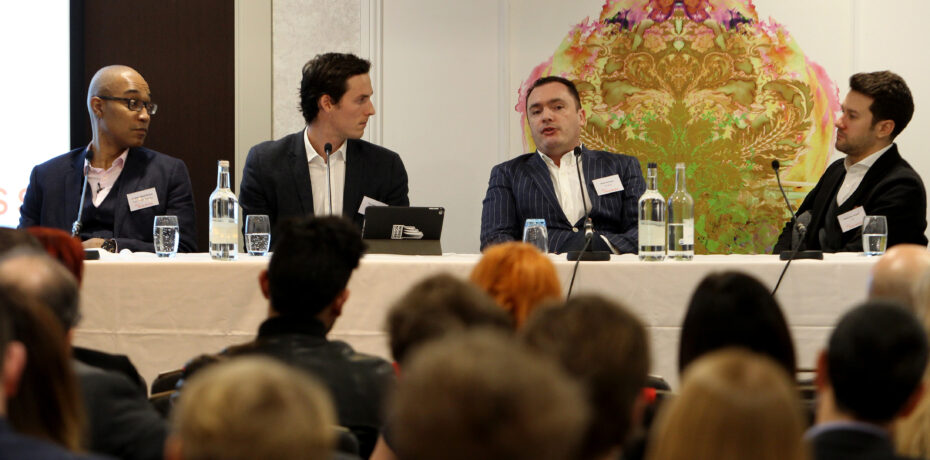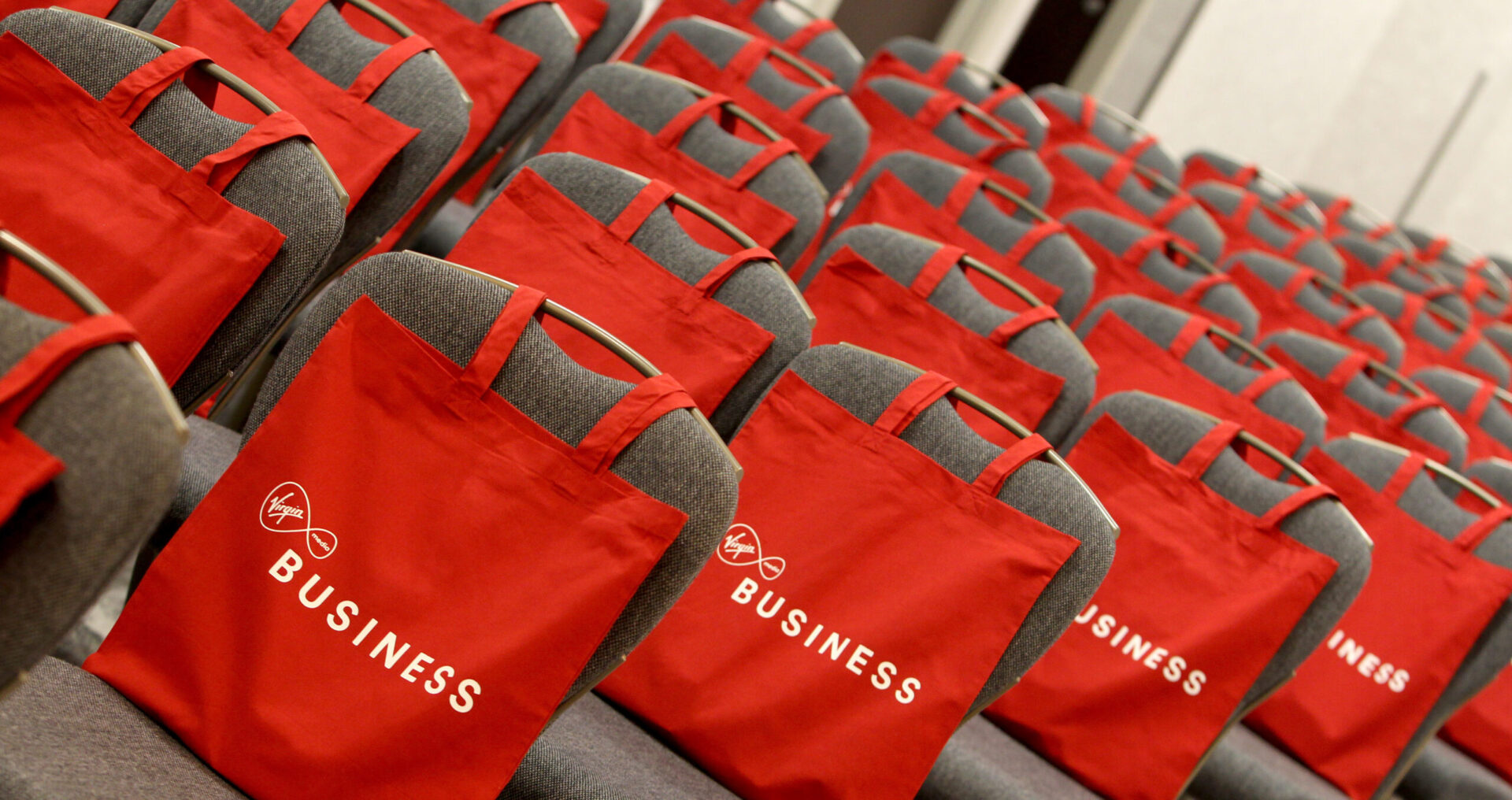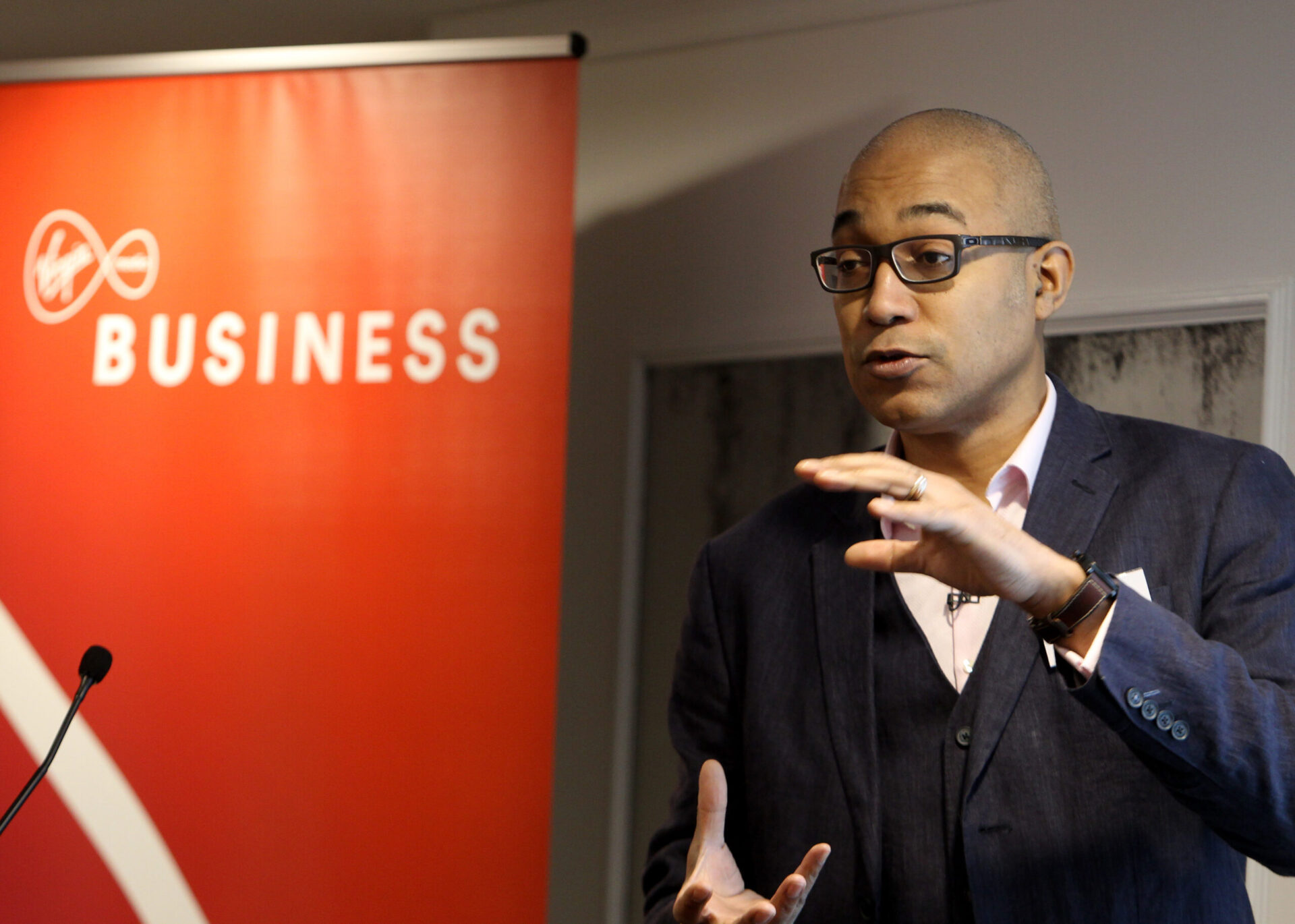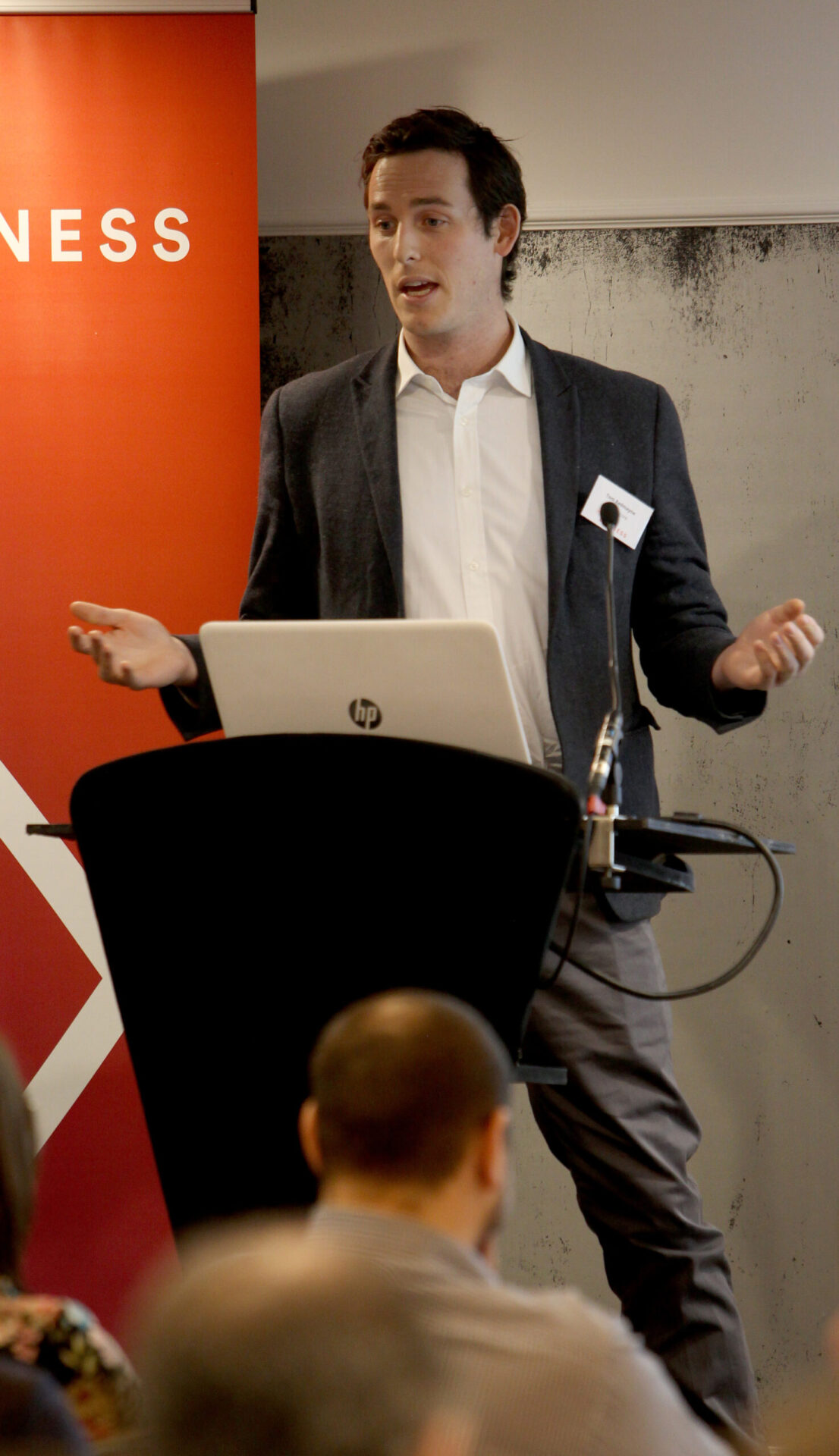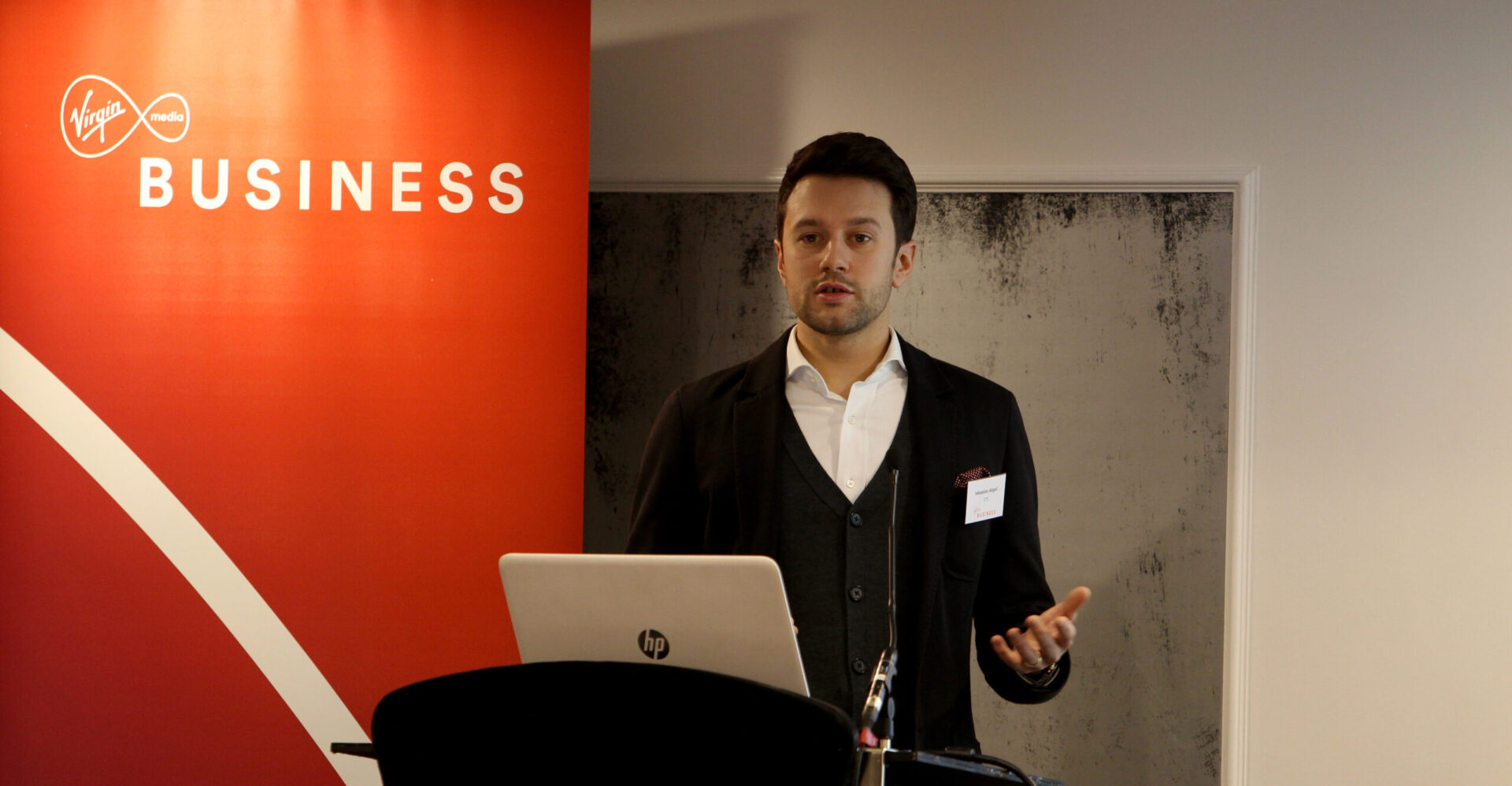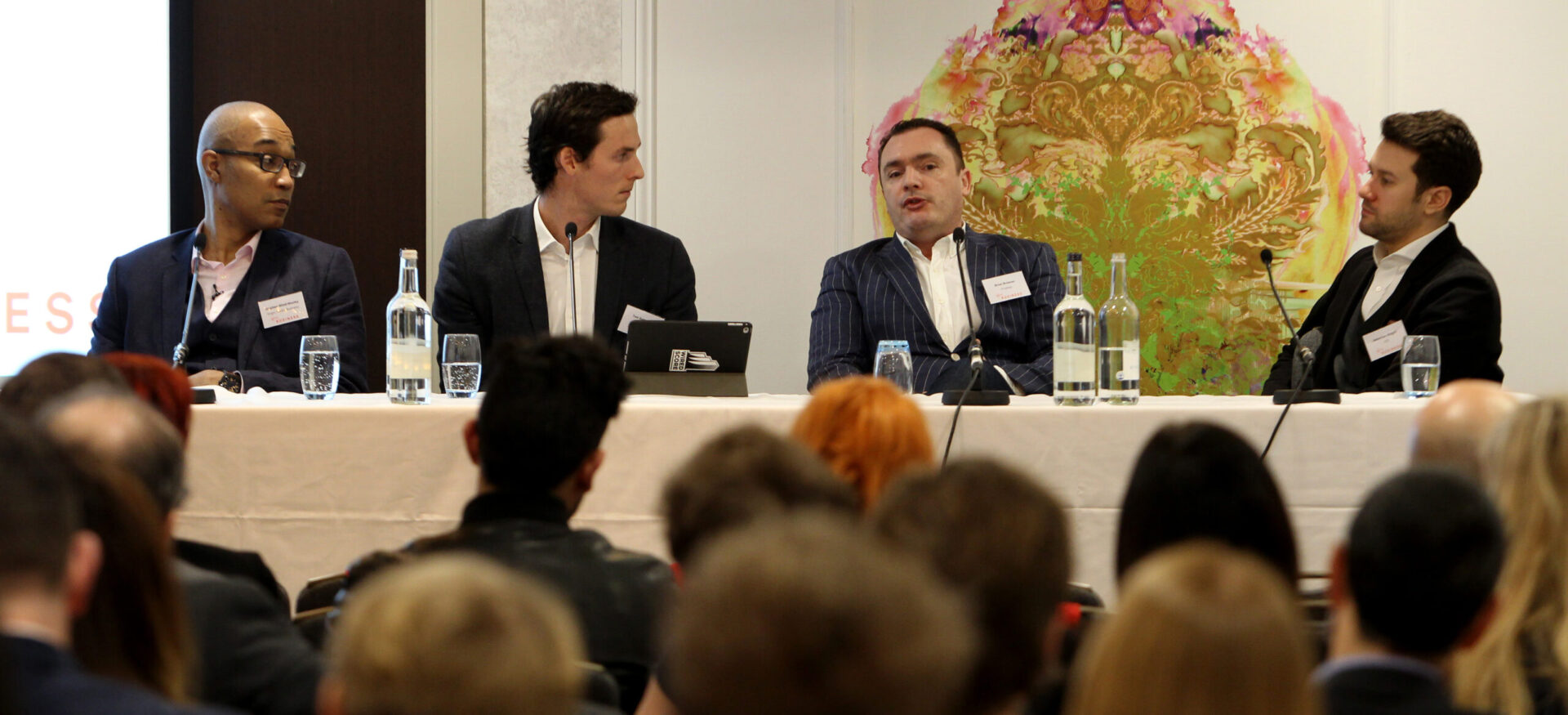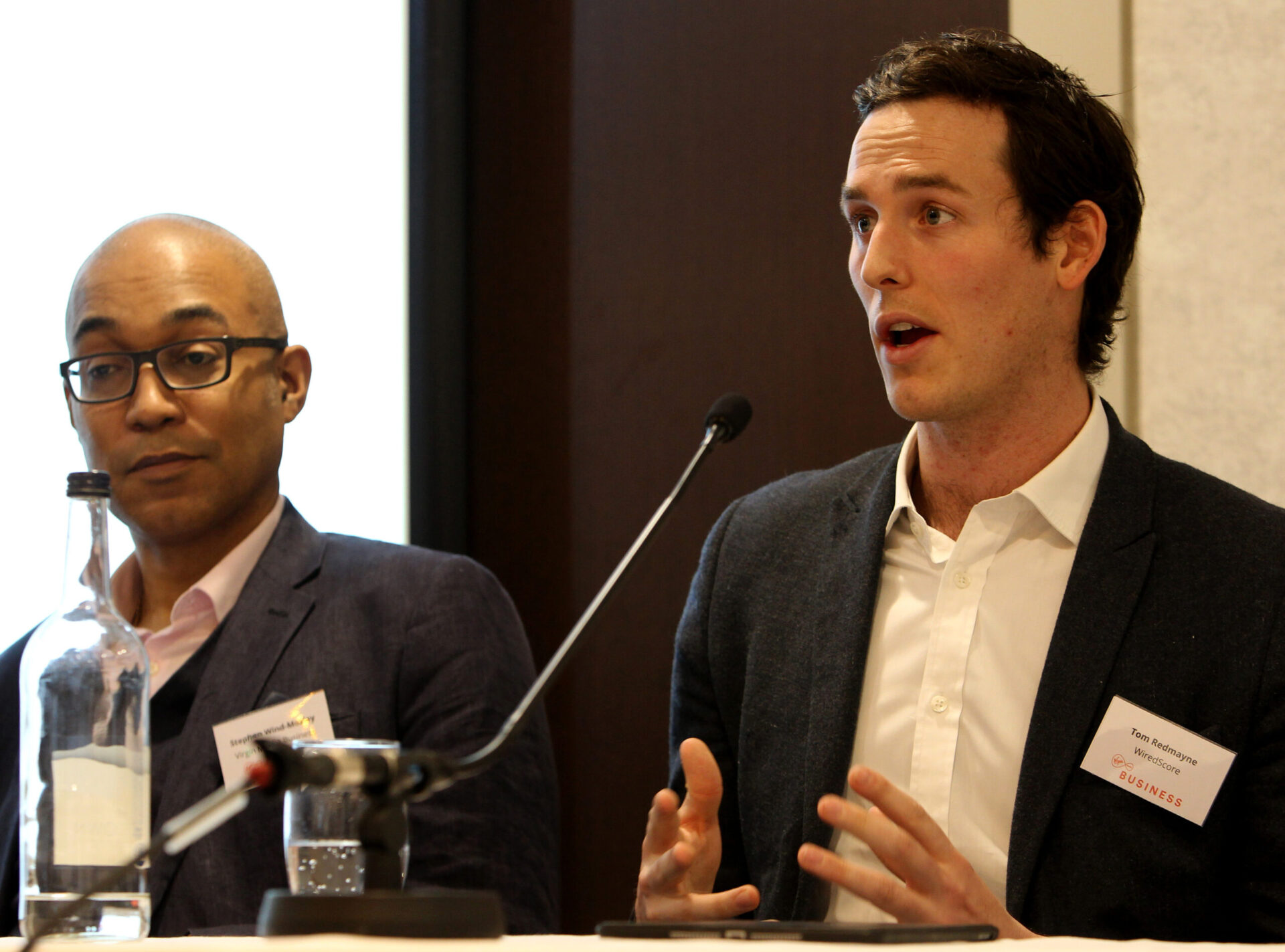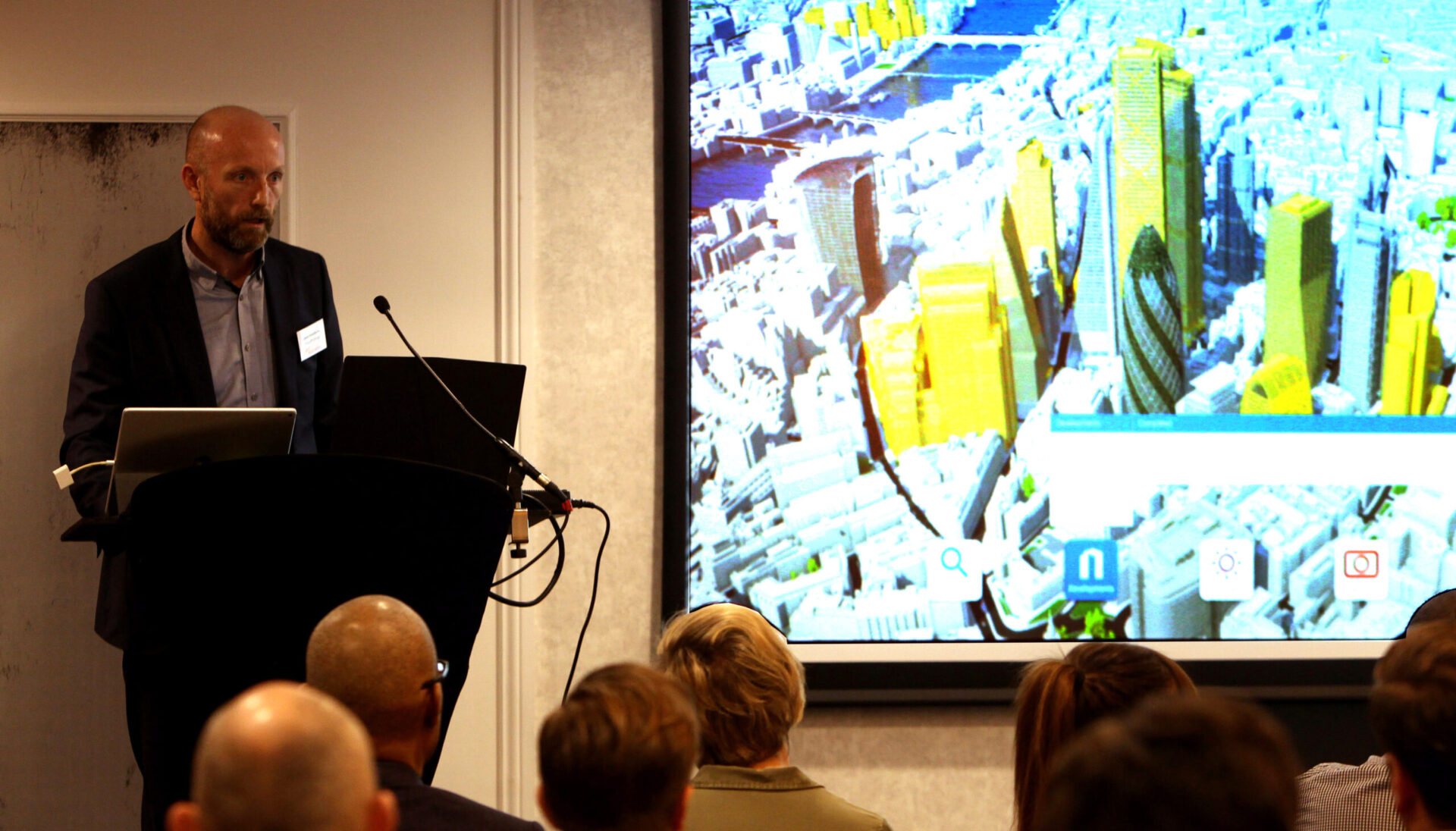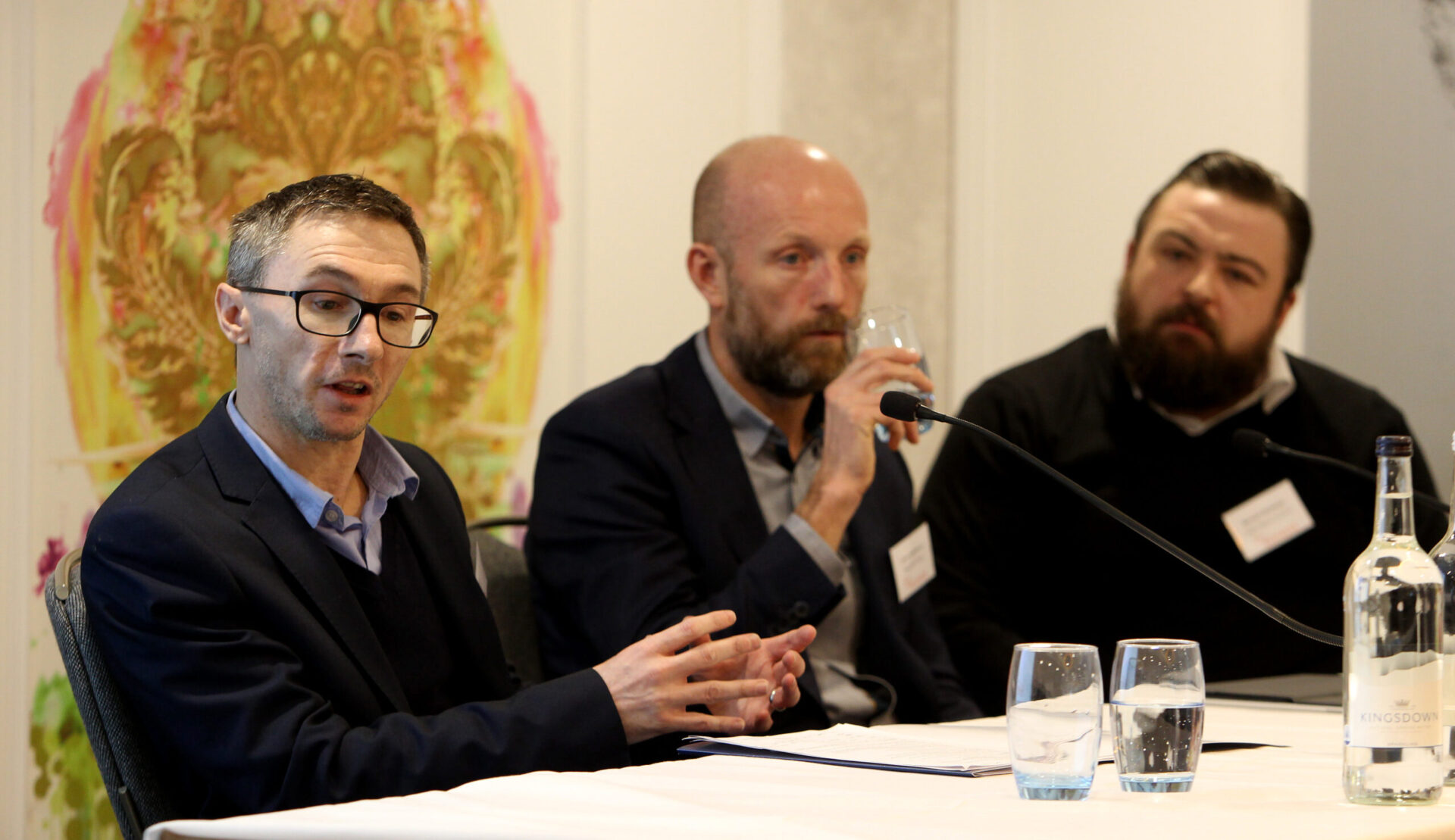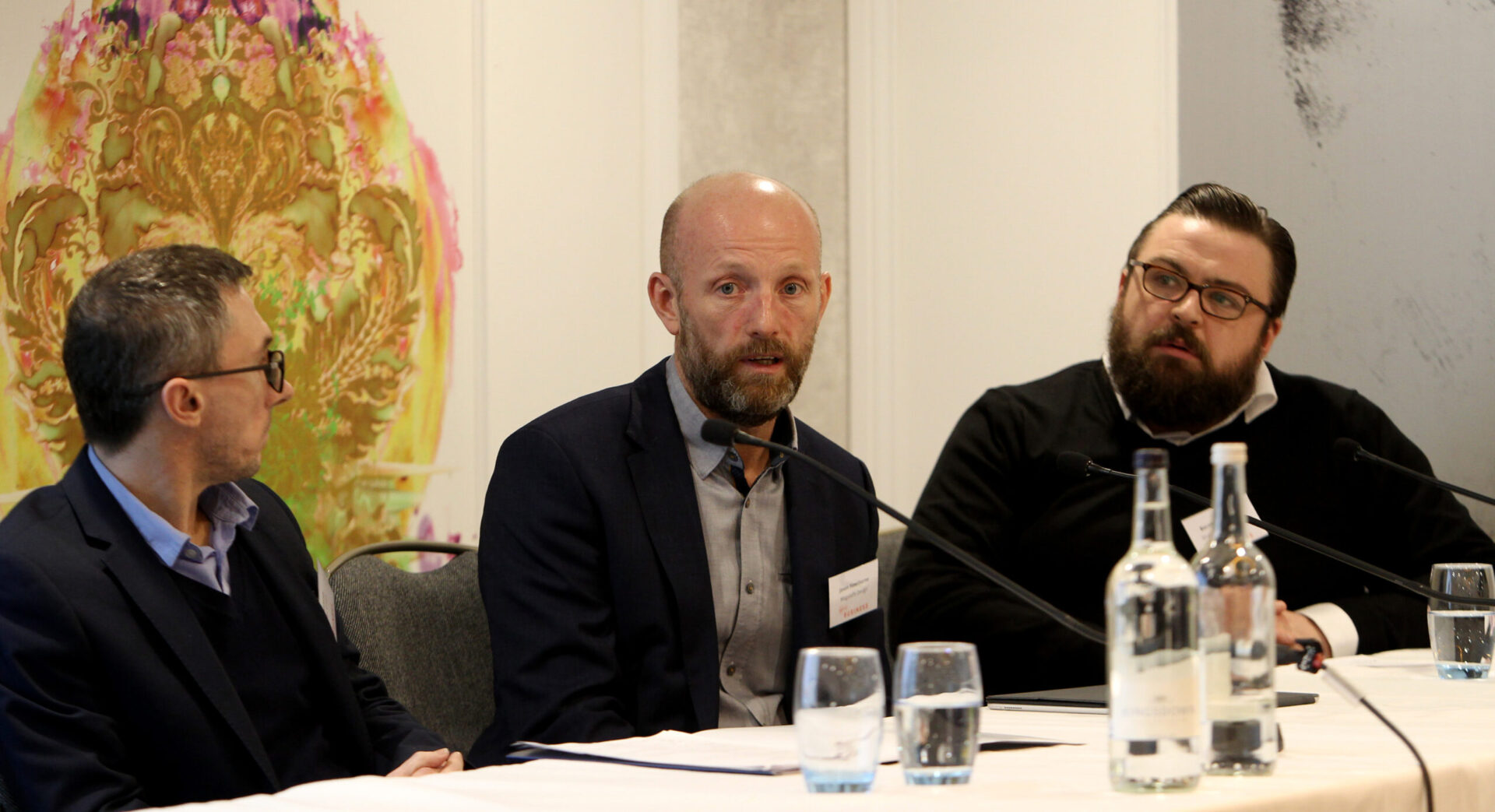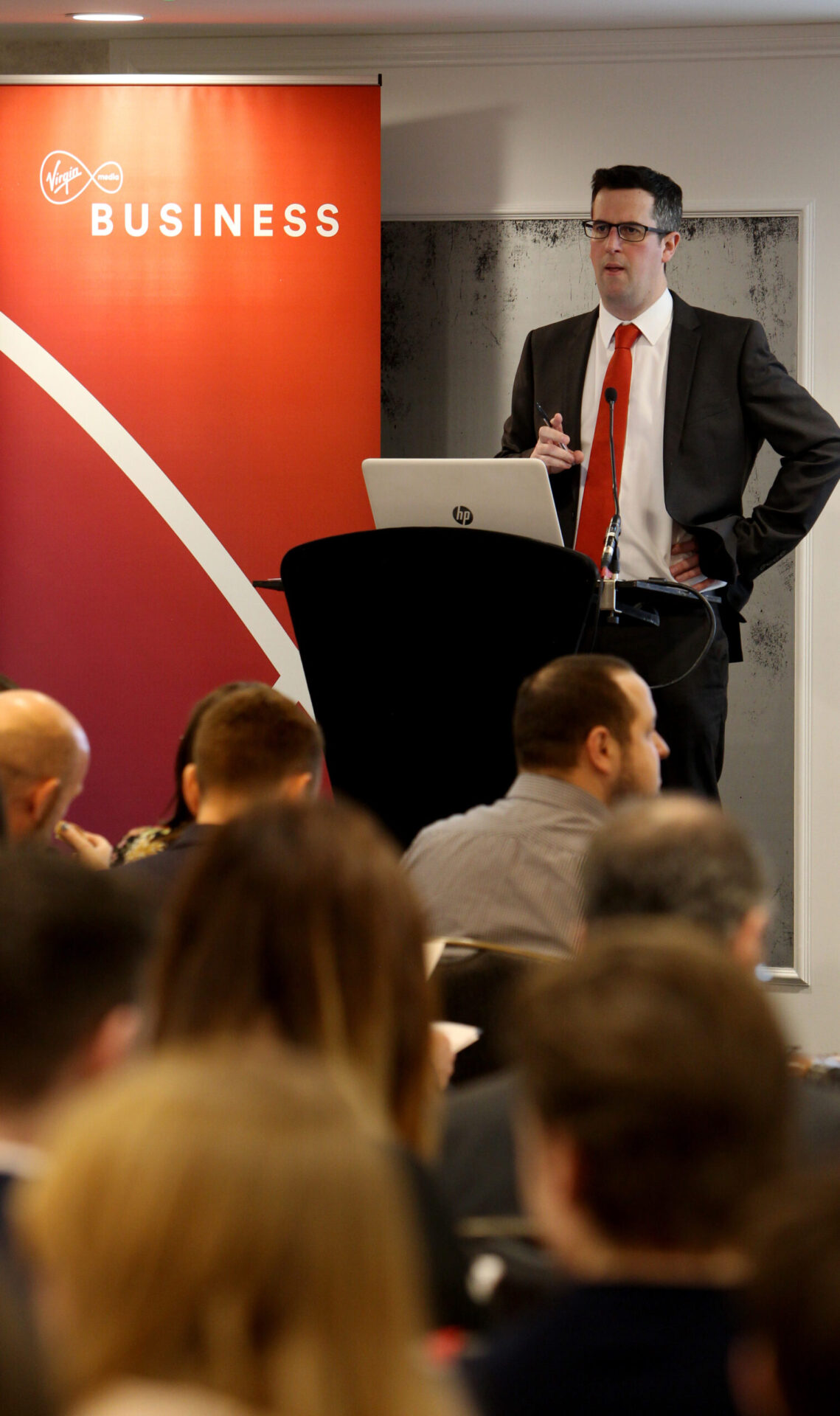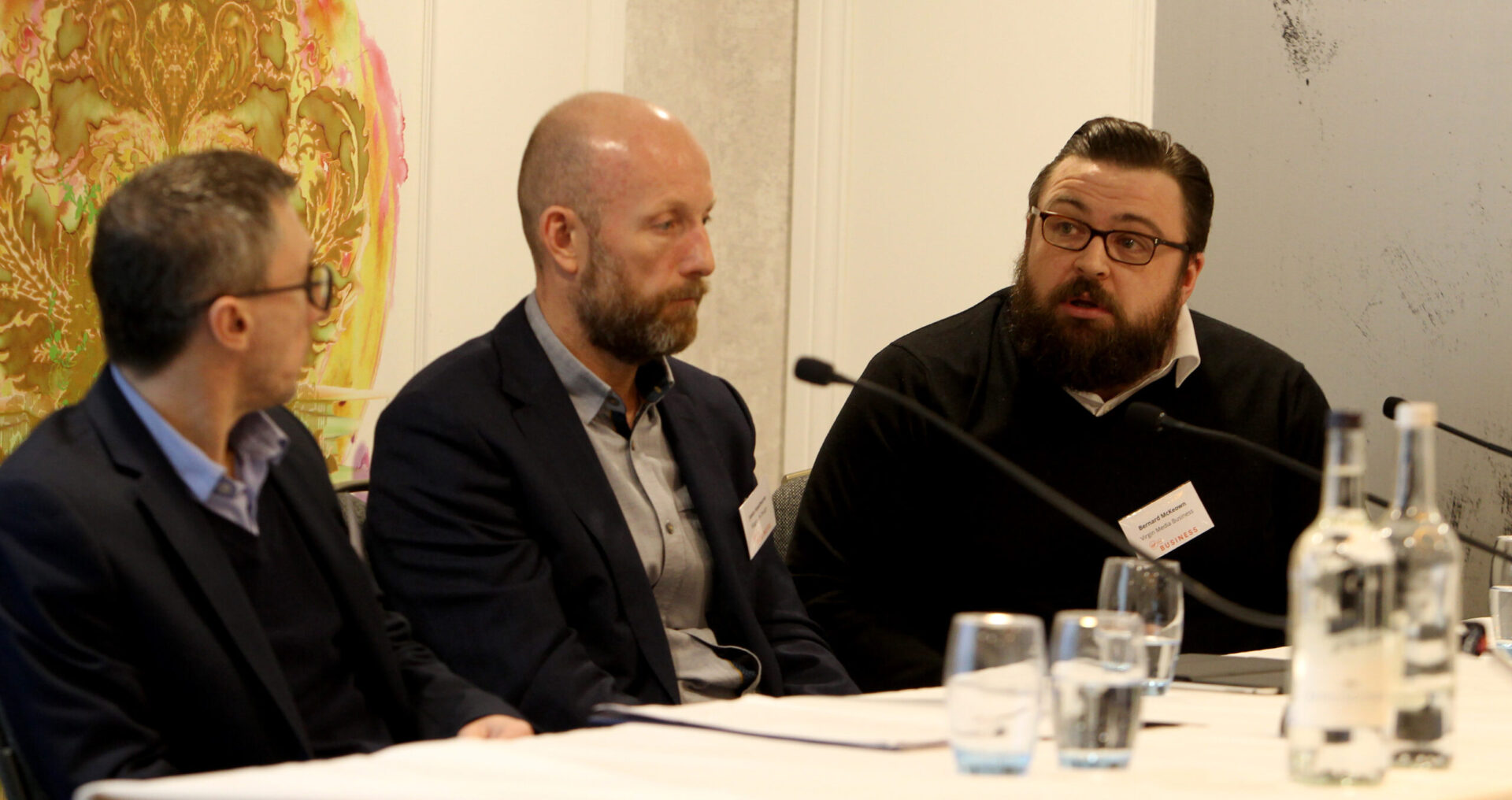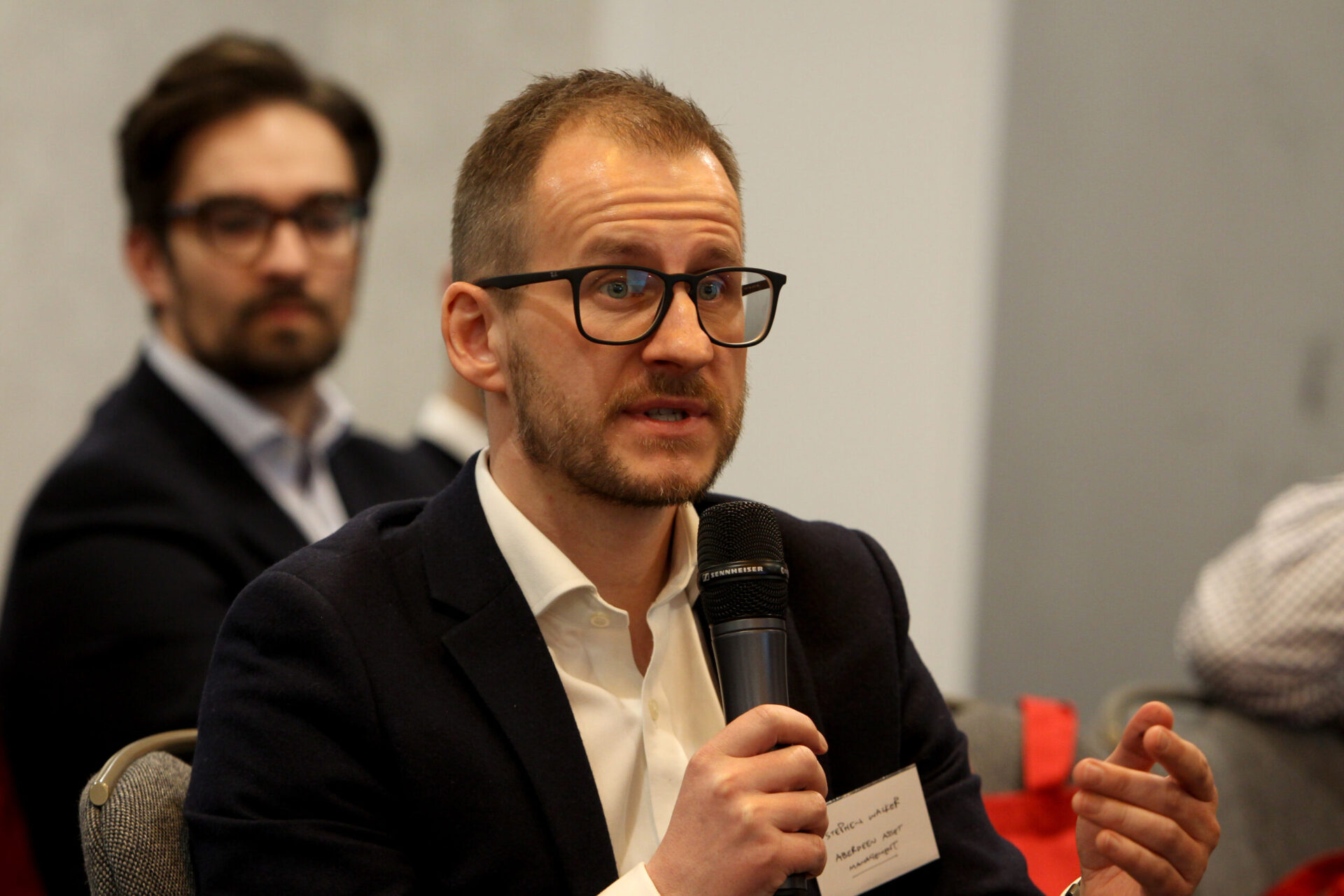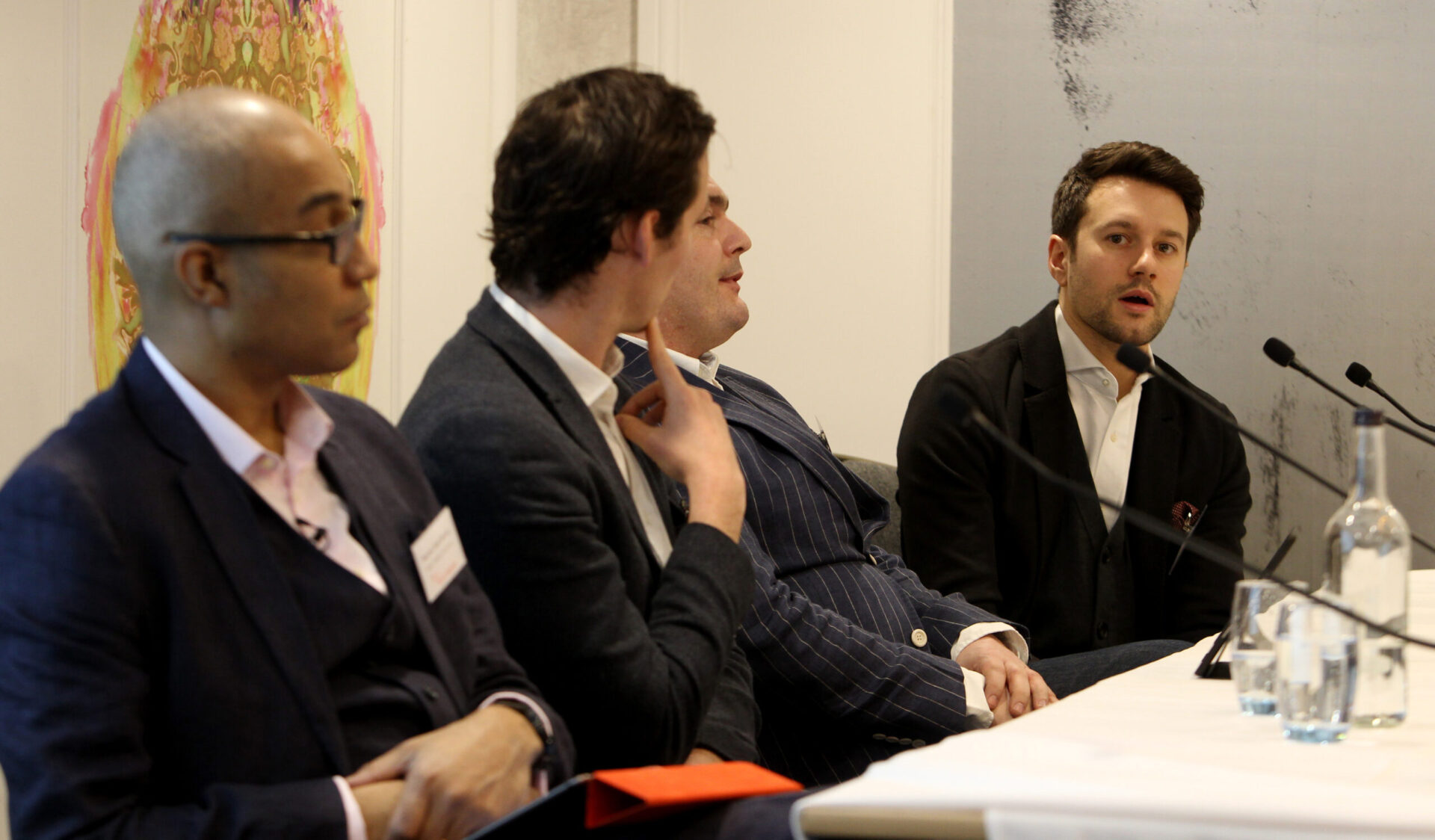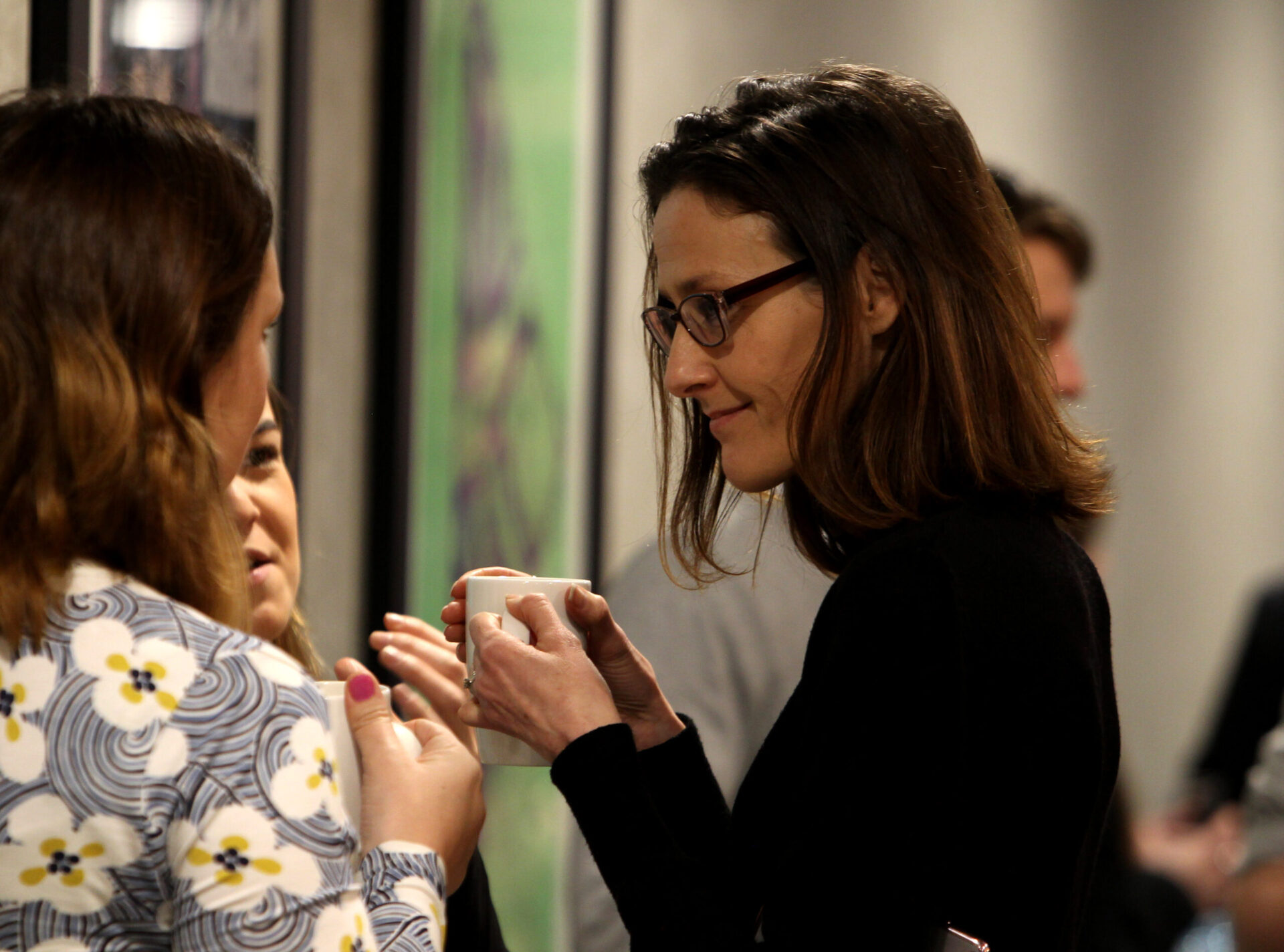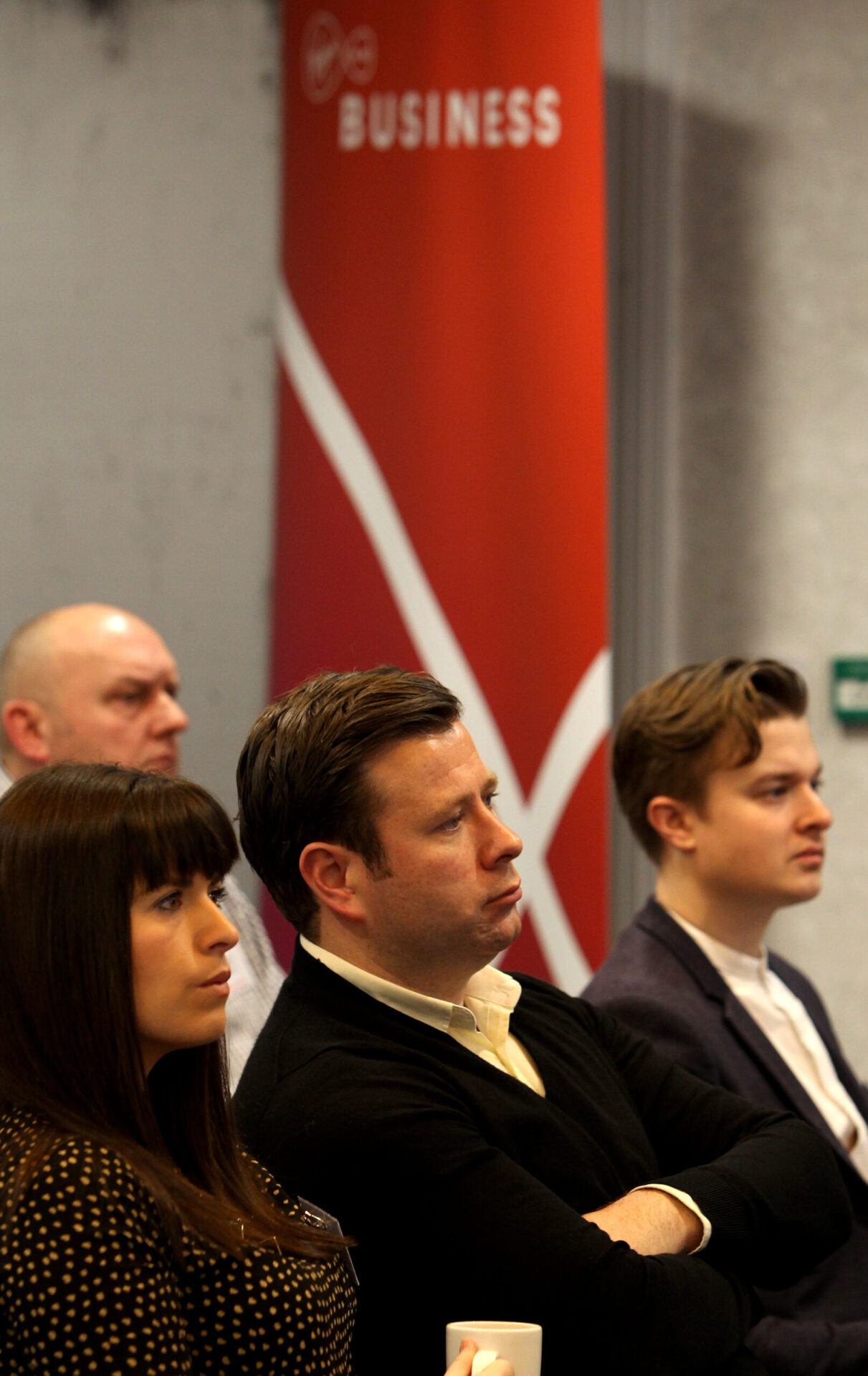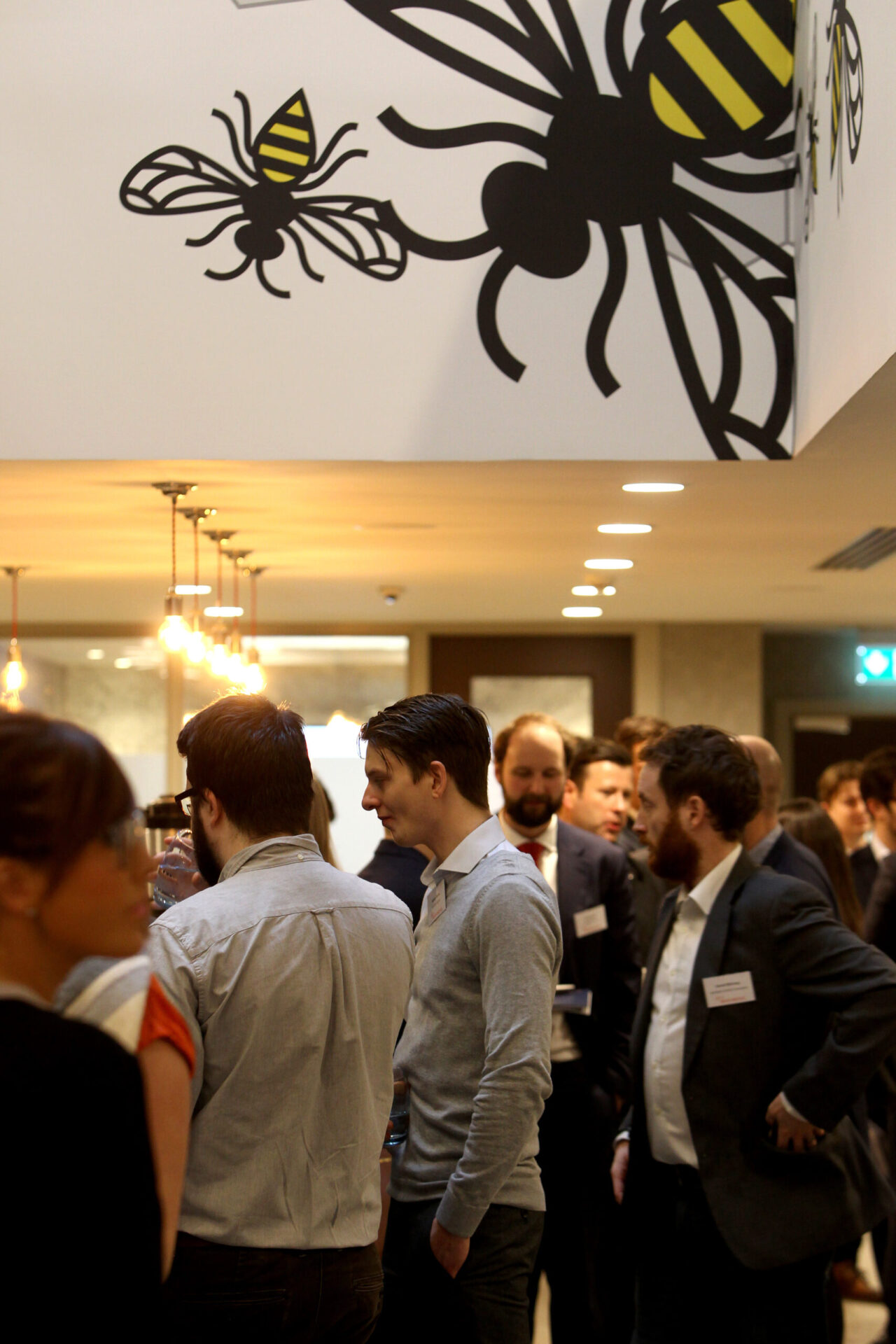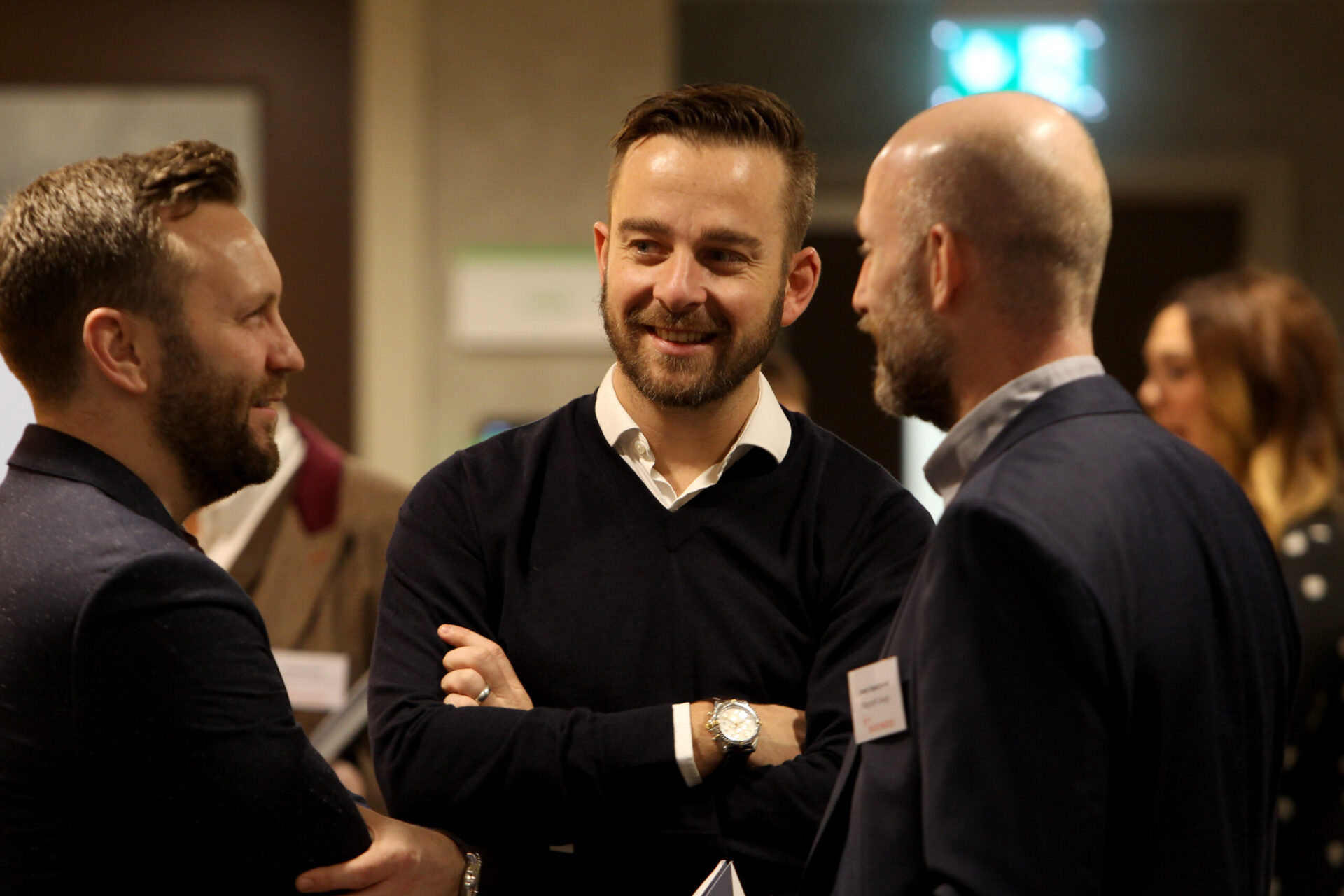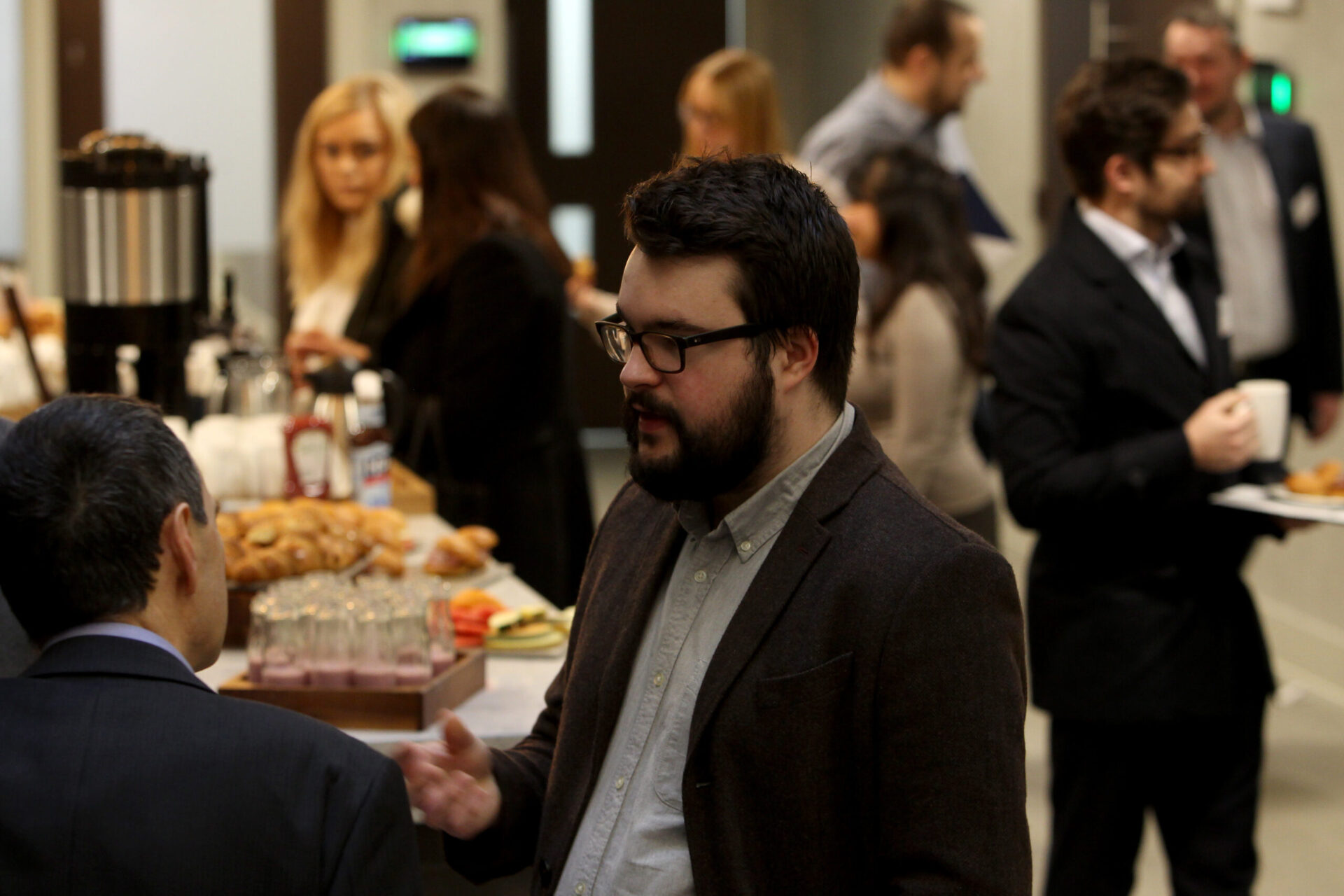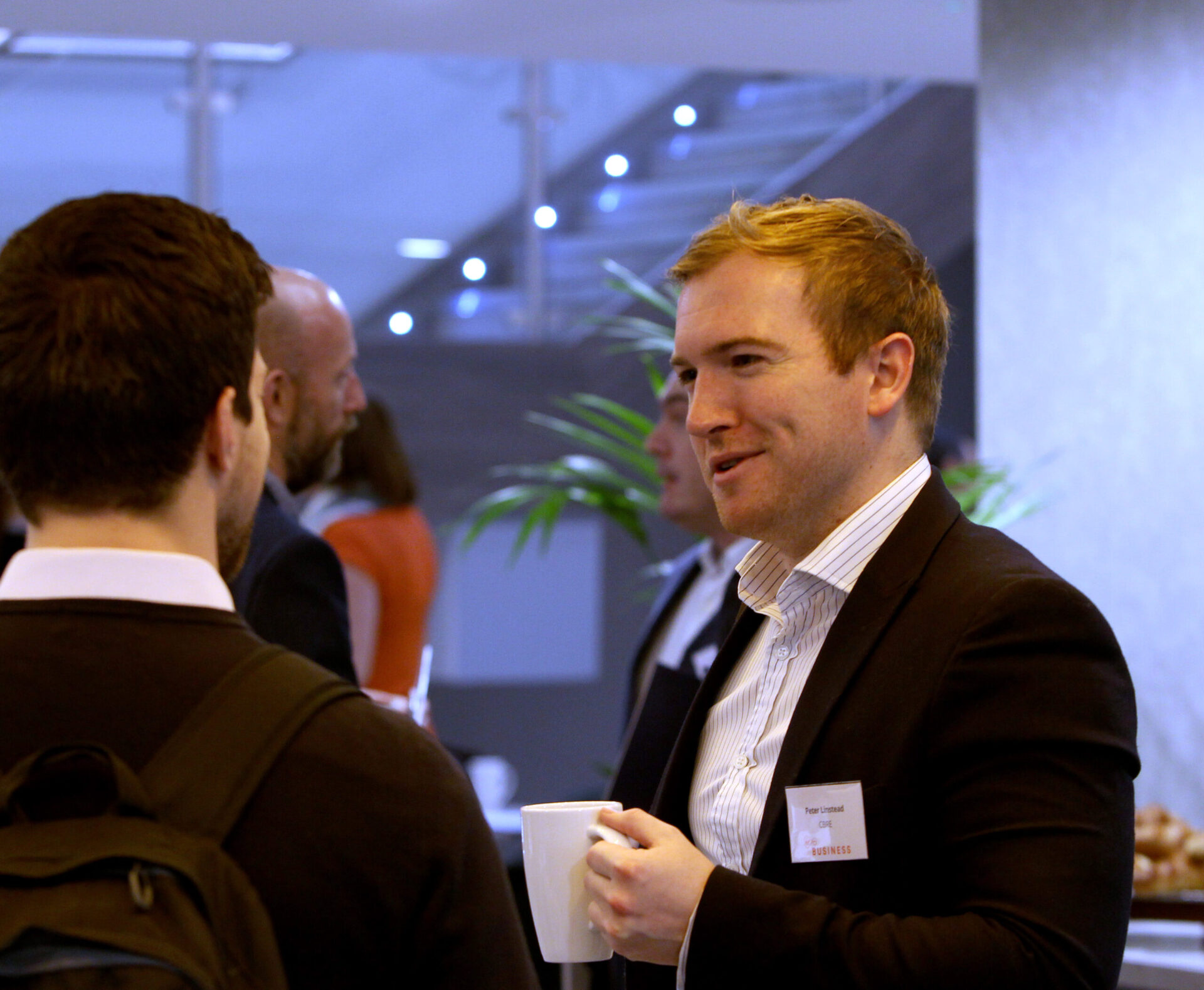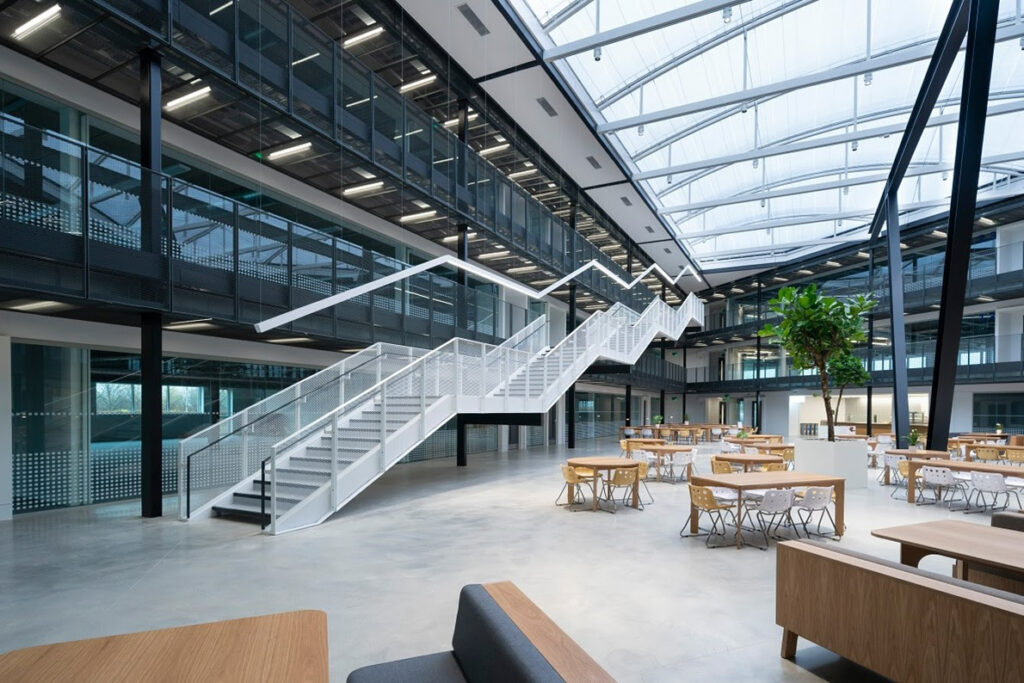Event Summary
Digital Opportunities | Summary, slides + photos
Barriers to entry into the real estate market for tech start-ups, and the challenges around updating archaic systems for property companies formed a large part of the discussion at a proptech event delivered by Place North West and Virgin Media Business.
See below for gallery + slides
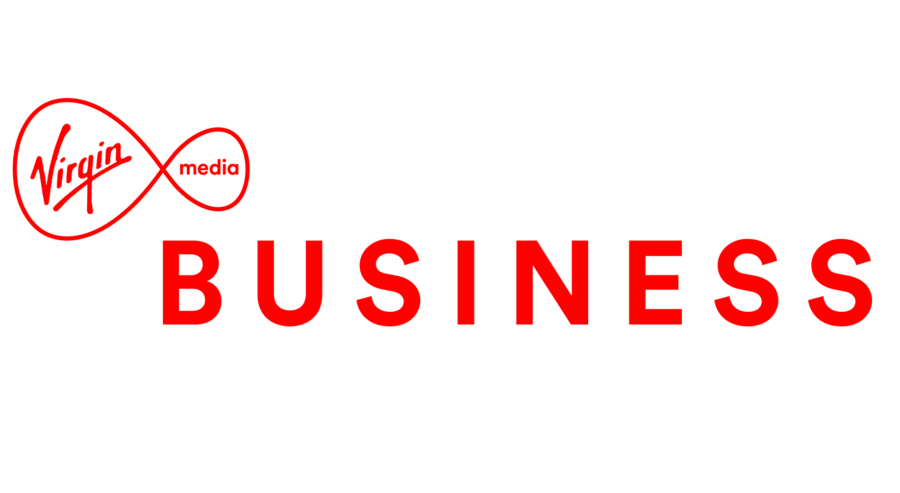 The half-day proptech briefing in Manchester looked at the importance of connectivity, the changing tech landscape and how property companies could futureproof their buildings and make the most of an era of rapid tech innovation.
The half-day proptech briefing in Manchester looked at the importance of connectivity, the changing tech landscape and how property companies could futureproof their buildings and make the most of an era of rapid tech innovation.
Speakers on the day were Steve Wind-Mozley, head of digital, and Bernard McKeown, business development lead for commercial real estate, at Virgin Media Business. They were joined by Sebastian Abigail, senior director of software giant VTS; Tom Redmayne, director of building accreditation scheme WiredScore; Jason Hawthorne, managing director of Wagstaffs Design; Brian Brosnan, founder of property technology summit Propteq; and Paul Jones, commercial surveyor at Urban Splash.
Better connectivity
- Virgin currently investing £3bn in installing fibre cabling across the UK, said Wind-Mozley
- Better digital connectivity for businesses could add £92bn to the economy
- Enables building to “be like a Tardis”, extending the value of the property outside the physical footprint of the building
- Unified communication over distance allows for an expanding team, wifi enables customers to get more from being in the property, and the cloud allows access to software and platforms from anywhere
- Internet of Things set to be major building revolution, bringing together static elements in properties such as lifts, to moving elements such as staff, via smartphones
- “Buildings don’t have to be dumb boxes”, said Wind-Mozley
Asset management is key
- The creation of leasing and asset management platforms like VTS responds to increased institutional investment into the property sector, which led to larger portfolios and more reporting complexities, said Abigail
- Paradigm shift in property, but tools haven’t changed, companies still largely work in Excel
- Average age of tech companies working within real estate is 30 years, which means the tech invented is pre-internet, and built for a different era
- “There is a focus on ease of experience in other sectors, so why not in real estate, especially with more venture capital in the sector than ever before,” Abigail said
- Abigail predicted there would be an increased emphasis on data, with commodity data becoming free, where the commercial real estate sector has to pay, unlike other sectors
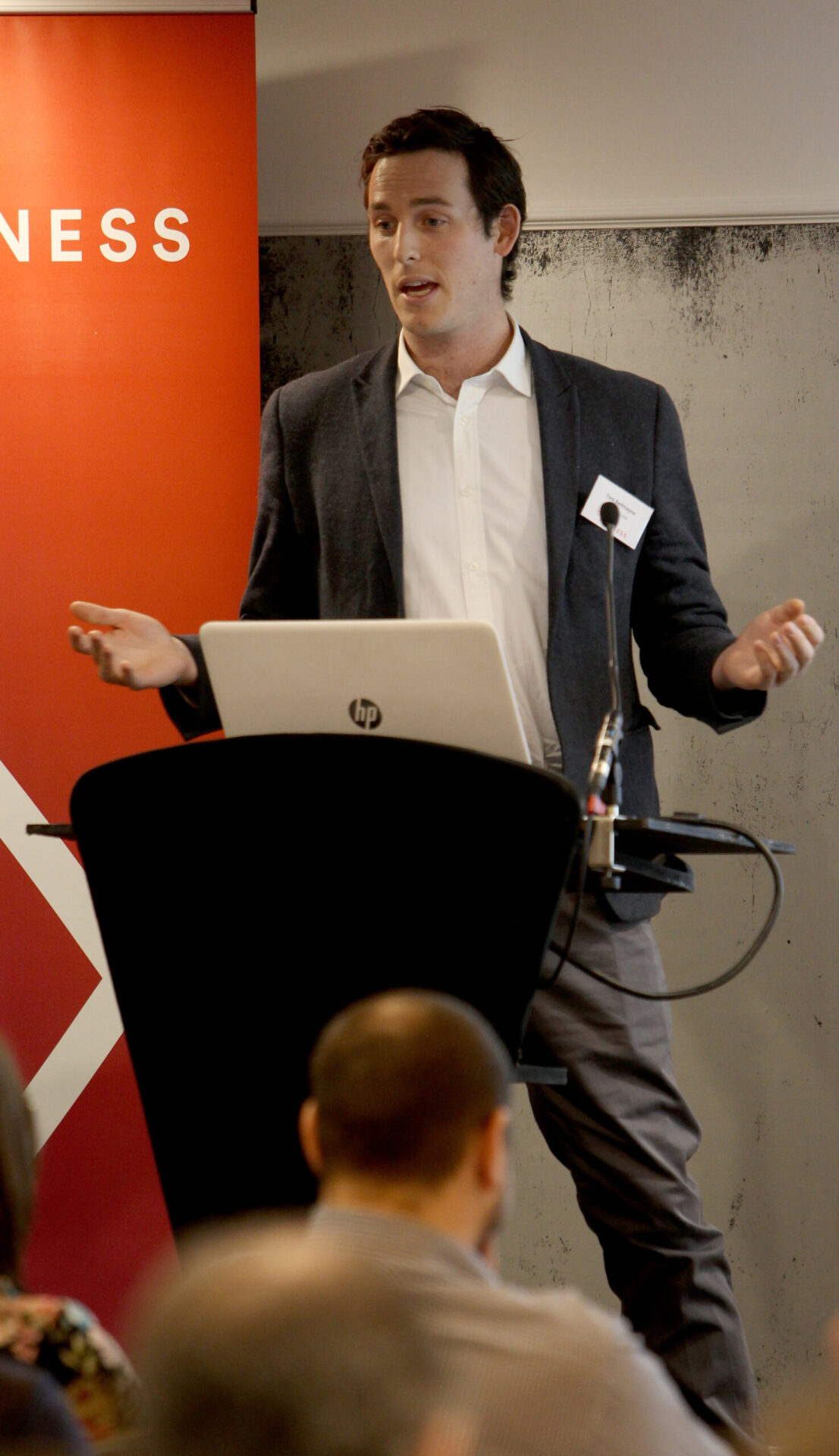
Tom Redmayne, WiredScore
Giving tenants tech knowledge they need
- The creation of WiredScore responded to the problem of tenants signing for offices that couldn’t keep up with their tech needs, explained Redmayne
- New York-based WiredScore aims to become an objective benchmark of how well connected buildings are across a number of criteria
- WiredScore was launched in Manchester last year, working with Hermes, Muse, Ask, and Allied London
- The service provides certification for buildings which are occupied, as well as in development, and advises on how to futureproof, such as avoiding single point entry for cabling, and lead-tinted windows blocking mobile signal
- “Tenants care most about internet set-up time, cost and resilience,” said Redmayne
- WiredScore ratings go from bronze to platinum, “but only 5% of buildings in the world will ever achieve platinum”, he said
Creating proptech community
- In founding the PropTeq conference, Brosnan was responding to the need to bridge the gap between innovative tech companies, and the slow-to-change property businesses
- Perception of industry was slow to change on prop tech, pace is now picking up but still little insight about implications internationally, he said
- Issue is that property industry at a corporate level involves many stakeholders, and ambitious tech companies looking to come in and disrupt are not aware of how complicated that can be to navigate
- UK outside of the US is the strongest proptech market, although seeing a lot of innovation in Germany
- Helping tech businesses understand how to connect to their target audience better was essential, said Virgin’s Wind-Mozley: “The tech industry has been willfully lax in educating customers, talking in acronyms which is a barrier to helping them know what they really want”
Building in context
- The Vucity 3D digital model, made in partnership with right-to-light specialist GIA, can help developments get through planning as its puts a building in its relevant context, said Wagstaff’s Hawthorne
- Using flyovers of cities such as London, or more recently Manchester, the model is built through photogrammetry to ensure it’s accurate to within 3cm
- Buildings can be added into the model as they’re proposed and viewers can move through a timeline to see the cumulative impact of development
- Vucity includes elements such as sunlight, protected views, noise impact, and how windows interrelate
- “It’s the physical world made digital”, Hawthorne said
Futureproofing a building means futureproofing your business
- “If real estate firms manage risk they can reap the rewards,” said McKeown of Virgin Media Business. “Better digital connectivity is more important than transport links.”
- Whether a new development or a current asset under management, developers and landlords need to prioritise futureproofing
- “Everything is a service – an office is a service. People want to plug in and play straight away, and property needs to be ready for that,” McKeown said
Internet: The fourth utility
- Paul Jones of Urban Splash said the developer saw the internet as “the fourth utility” and essential to securing occupiers quickly. “If you can’t answer tech questions quickly it prolongs the deal,” he said
- The contentious issue of wayleave agreements, the often slow granting of access to telecom engineers to go onto a premises, raised its head: “Wayleave is a necessary evil but frustrating for everyone. Government standardisation needs to happen as a matter of urgency.”
- Urban Splash is in the process of updating tech across all its buildings, and is emphasising building technology into its new HoUSe residential brand: “We’re using the internet of things to make connected homes, using sensors below baths, in water pipes, and apps connect to alarms”
To view the presentations from the day, click here
Select any image below to launch gallery
- Steve Wind-Mozley, Virgin Media Business
- Tom Redmayne, WiredScore
- Sebastian Abigail, VTS
- From left: Steve Wind-Mozley, Virgin Media Business; Tom Redmayne, WiredScore; Brian Brosnan, Propteq; Sebastian Abigail, VTS
- Jason Hawthorne, Wagstaffs Design, demonstrates VUCITY software
- From left: Paul Jones, Urban Splash; Jason Hawthorne, Wagstaffs Design; Bernard McKeown
- Paul Jones, Urban Splash; Jason Hawthorne, Wagstaffs Design; Bernard McKeown
- Paul Unger, editor, Place North West chaired the event
- Paul Jones, Urban Splash; Jason Hawthorne, Wagstaffs Design; Bernard McKeown


